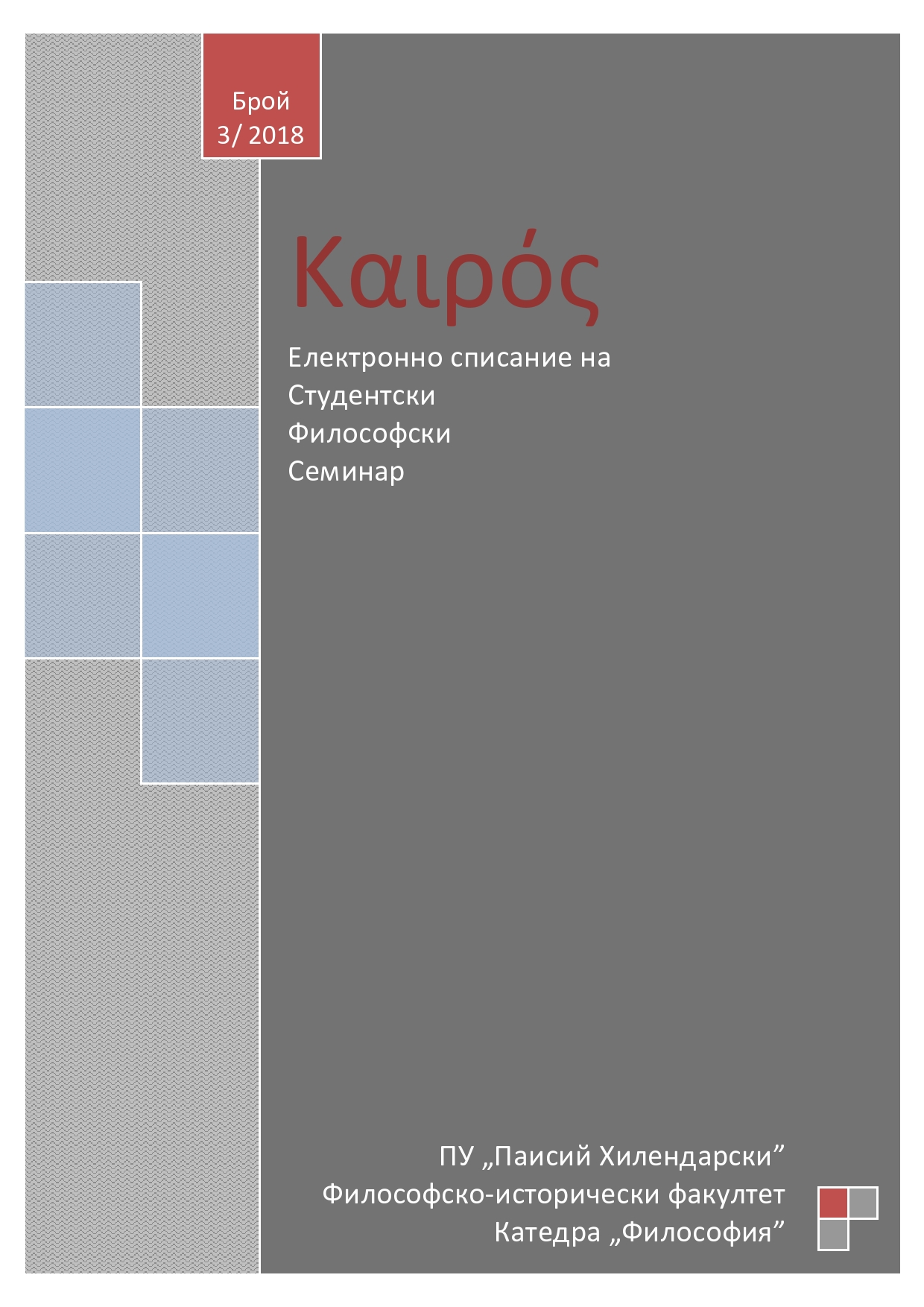Тимъти Снайдър - идеи и събития в историографията
Timothy Snyder – Ideas and Events in Historiography
Author(s): Hristo P. TodorovSubject(s): Philosophy, Special Branches of Philosophy, Philosophy of History
Published by: Пловдивски университет »Паисий Хилендарски«
Keywords: historical knowledge; “politics of inevitability”; “politics of eternity”; “politics of responsibility”
Summary/Abstract: Historical knowledge is knowledge of facts. Though in order to decide which facts are relevant and important, a philosophical theory about history as a whole is needed. Philosophy of history offers three major types of such theories. According to the theories of the first type, historical events are realizations of a providential plan. According to the second type, the historical process is realization of ideas. According to the third type the driving forces of history are economic factors. In all three cases everything that happens in history is caused by anonymous objective forces. There is, however, a different philosophy of history adopted by many professional historians intuitively. According to this philosophy, history is not determined by anonymous forces but solely by the decisions and actions of individuals. One of the most prominent advocates of this view is the American historian Timothy Snyder. Based on Snyder‘s books “Bloodlands. Europe between Hitler and Stalin” (2012), “Black Earth: The Holocaust as History and Warning” (2015), “On Tyranny: Twenty Lessons from the Twentieth Century” (2017), “The Road to Unfreedom. Russia, Europe, America” (2018), the paper discusses Snyder’s approach to the relation between theory and historical events. Snyder claims that the actions of individuals in history depend significantly on their ideas of time. At present there are two predominant views on time. Snyder calls them “politics of inevitability” and “politics of eternity”. By “politics of inevitability” he means the view that nowadays there are no alternatives to liberal democracy any more. The expression “politics of eternity” means that nothing new happens in history and there are only endless reiterations of the same. Both “politics of inevitability” and “politics of eternity” are deeply wrong and should be rejected. Another view called “politics of responsibility” should be adopted. According to this view there is nothing inevitable in history. Everything what happens in history has its sources in human decisions and human actions and therefore humans bear responsibility for them. Choosing “politics of responsibility”, Snyder takes a particular stance towards the work of the historian. Since everything what happens in history depends only on human decisions, the historian has to contribute to making present decisions as good as possible. The historian’s main obligation is to offer a picture of the past, true to the facts, free from any deceptions and manipulations.
Journal: Καιρός
- Issue Year: 2018
- Issue No: 3
- Page Range: 9-19
- Page Count: 11
- Language: Bulgarian

